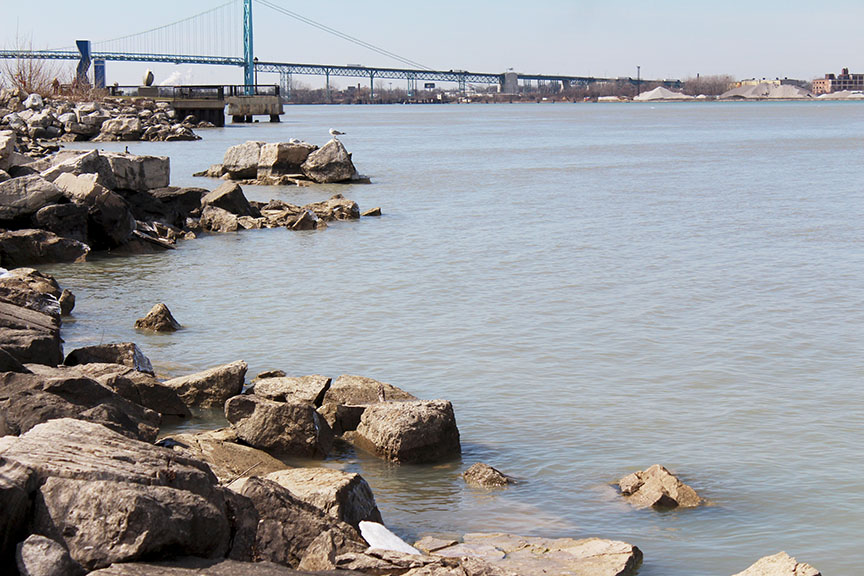Trump’s environmental budget cut “should wake Canadians up”: researcher

Pipelines under the Detroit River pose a severe threat to Canadians if there is ever a leak, experts warned during a panel discussion at the University of Windsor on World Water Day, Mar. 22, 2017. (Photo by Nantanaa Mutharasu)
Home to the largest freshwater lakes on earth, Canada plays a pivotal role in protecting its water but U.S. President Donald Trump’s recent proposal to cut 31 per cent of the Environmental Protection Agency’s budget raises concerns.
Initiated by the United Nations and celebrated throughout the world, this year’s theme for World Water Day is “wastewater.”
The University of Windsor hosted a panel discussion ‘Protecting Water, Confronting Challenges’ featuring experts such as Doug Haffner, a researcher at the Great Lakes Institute for Environmental Research (GLIER) as well as community experts such as Mark Bartlett, Community Environment Representative of Unifor 444 and Randy Emerson from Windsor On Watch and Council of Canadians Windsor-Essex.
Panel experts used this opportunity as a call for action. They discussed the Great Lakes, recycling, pipelines and Trump’s budget proposal.
“Maybe we should look at ourselves and say what we allowed our governments to do and how can our government ignore our Great Lakes that generate 60 per cent of GDP for our country,” said Haffner.
Haffner hopes Trump’s proposal forces Canadians to take action to protect the Great Lakes.
“We need to make this into a political issue where there is a responsibility in the government to recognize the resources of the Great Lakes,” said Haffner. “We spend billions of dollars putting instruments into the ocean from East Coast to West Coast of Canada but we put nothing into the Great Lakes.”
The panel pointed out there is a lot of water used in the process of transportation.
“When you’re mining raw ore to make into aluminium cans, a tremendous amount of water goes into that,” said Bartlett. “For every barrel of oil they take out of the ground, it can be four to eight barrels of water used to take the oil out.”
Emerson brought attention to the pipelines that are being approved by the government and its effects on Canadians.
“There’s going to be a new section of pipeline from Ohio which is called Utopia from Kinder Morgan,” said Emerson. “It’s going to be built up and around and will come into Windsor where it will store ethane and ethane-propane mix.”
“There’s also pipelines underneath the river, so if there’s a leak, there’s going to be problems,” said Emerson.
Haffner explained large lakes have long retention times, impossible for rapid water renewal and Canada must develop a national water policy to adapt to changing global environment.


